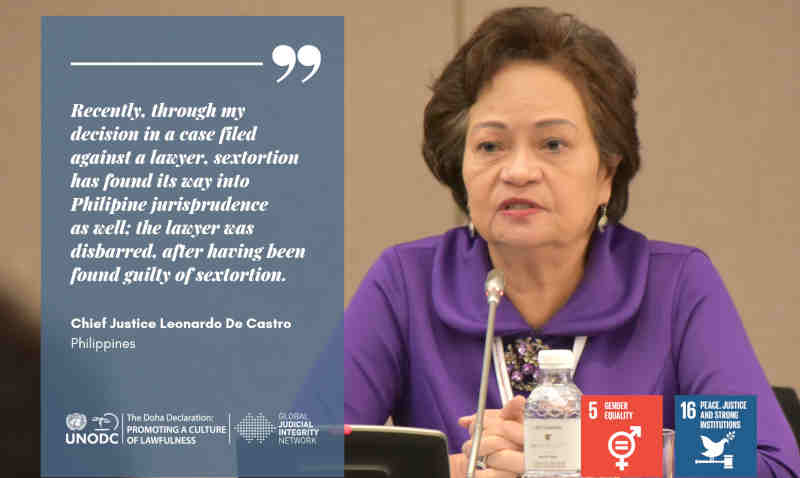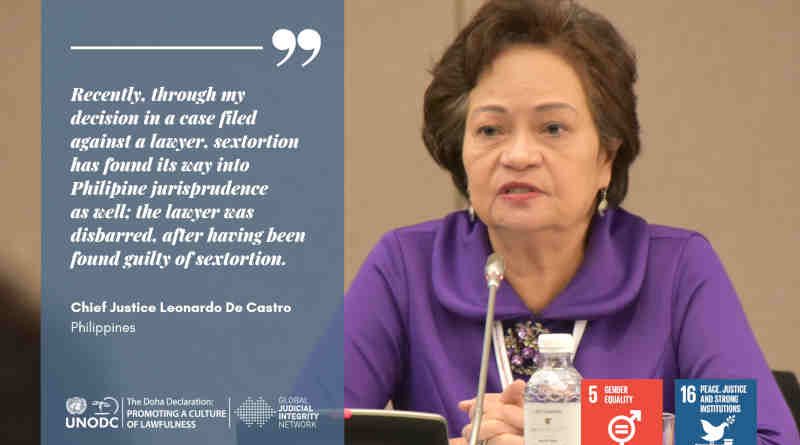Exposing and Preventing Sextortion in the Judiciary

Exposing and Preventing Sextortion in the Judiciary
By Chief Justice Teresita Leonardo de Castro. Courtesy: UNODC
Sextortion, as defined by the International Association of Women Judges (IAWJ), is the abuse of power to obtain a sexual benefit or advantage. As such, it is a form of corruption in which sex, rather than money, is the currency of the bribe.
It is not limited to certain countries or sectors, and can be found wherever those entrusted with power lack integrity and try to sexually exploit those who are vulnerable and dependent on their power.
The IAWJ has succinctly explained the principle underlying sextortion as follows: what distinguishes sextortion from other types of sexually abusive conduct is that it has both a sexual component and a corruption component.
The sexual component of sextortion arises from a request – whether implicit or explicit – to engage in any kind of unwanted sexual activity, ranging from sexual intercourse to exposing private body parts.
[ Legal Directions Newsletter Covers Indian and International Legal Affairs ]
The corruption component stems from the person demanding the sexual favor occupying a position of authority, which they abuse by seeking to exact, or by accepting, a sexual favor in exchange for exercising the power entrusted to them. In other words, the perpetrator exercises their authority for their own gain.
It is important to recognize that sextortion violates fundamental ethical standards, because even if an act may not technically constitute a violation of a penal law, people in authority should still not misuse their power by seducing subordinates and individuals over whom they exercise authority, or by enticing them to grant them sexual favors.
| Download and Read RMN Publications | ||||
| TechWise Today | The Integrity Bulletin | Clean Climate | Legal Directions | Young Learner |
The main barrier to the effective fight against sextortion is the victims’ fear of exposing perpetrators, fearing possible reprisals which could include a demotion, the withholding of benefits, or even the loss of their job.
Moreover, lawyers may refuse to represent the victims of judges for similar reasons, fearing it may adversely affect their practice of law before the courts.
Raising awareness by introducing the term into public dialogue, and by holding perpetrators accountable, will help us on the path to ending sextortion in the judiciary.
You can click here to read the full article.
Chief Justice Teresita Leonardo de Castro served as the first female Chief Justice for the Supreme Court of the Philippines and is the former President of the International Association of Women Judges.






